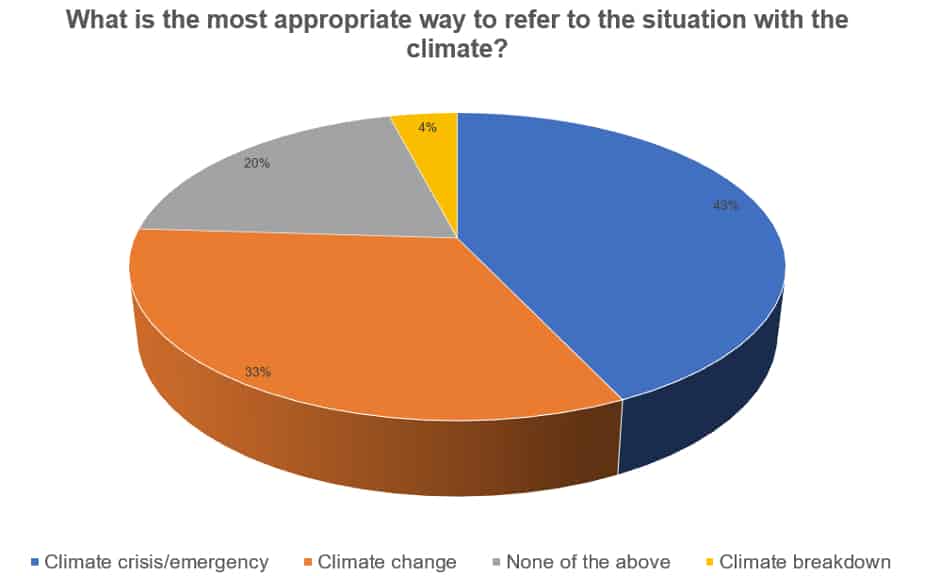Last week’s poll: language and the climate
What is the most appropriate way to talk about the situation with the Earth’s climate?


Recently, Guardian editor Katherine Viner sent a memo to the paper's journalists setting out how it was going to change the language it used to talk about the climate. This, she explained, was to press home the magnitude of the challenge that changes to our climate pose, and how seriously the issue should be taken by readers and policymakers. We asked The Engineer's readers what they thought of Viner's recommendations.
A third (33 per cent) felt that the prevailing term of 'climate change' was sufficient, despite Viner's belief that this phrase "sounds rather passive and gentle when what scientists are talking about is a catastrophe for humanity”. From now on The Guardian will be using terminology such as 'climate emergency', 'climate crisis' or 'climate breakdown'. Some variation on the first two of these (crisis/emergency) was the most popular choice in our poll, garnering 43 per cent of the vote. 'Climate breakdown' was significantly less popular, backed by just four per cent. One-fifth of respondents (20 per cent) chose the 'none of the above' option, a larger proportion than usual for our polls, which is likely to have included some who dispute the veracity of the prevailing scientific consensus on the climate.
Register now to continue reading
Thanks for visiting The Engineer. You’ve now reached your monthly limit of news stories. Register for free to unlock unlimited access to all of our news coverage, as well as premium content including opinion, in-depth features and special reports.
Benefits of registering
-
In-depth insights and coverage of key emerging trends
-
Unrestricted access to special reports throughout the year
-
Daily technology news delivered straight to your inbox










Water Sector Talent Exodus Could Cripple The Sector
Maybe if things are essential for the running of a country and we want to pay a fair price we should be running these utilities on a not for profit...